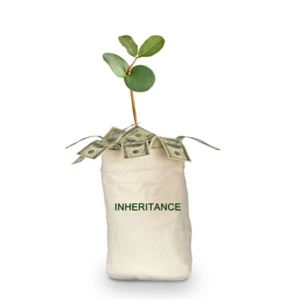3 Things to Consider Before Receiving an Inheritance
The news that you will receive an inheritance is bittersweet, as it means that somebody close to you has passed away. You also may have mixed emotions about the inheritance for various reasons, including whether you will need a lawyer to represent you and whether receiving the inheritance will have unforeseen consequences.
On the one hand, you might not want to reject your inheritance out of respect for the person who included you in their estate plan or named you as their “paid-on-death beneficiary” of an account or policy. Then on the other hand, depending on what you have been gifted, an inheritance might pose unintended financial or logistical difficulties.
Can you reject an inheritance?
There is no law that requires you to accept an inheritance. If a beneficiary chooses to turn down a gift, it does not mean it will end up in the hands of the state (which is a common misconception). Before accepting or rejecting an inheritance you might want to seek legal and tax advice about the implications of either decision.
Do assets need to be divided equally?
An estate plan contains instructions for distributing a person’s assets upon death. Many times, families will discuss who will receive certain accounts or property ahead of time. For example, maybe all the kids are asked if they would like to inherit an item from their mom’s jewelry collection. A testator/trustor, in an effort to be fair, will likely divide their assets equally among their children. However, sometimes one of the children may receive a larger portion of the inheritance based on their greater role as a caregiver or for their contribution time to the family, compared to the other children. It is important to understand that testators/trustors are under no legal obligation to leave their assets equally, or outright, to their children and are generally entitled to divide up their assets however they see fit.
Furthermore, family dynamics can play a significant role when a testator/trustor determines how to leave an inheritance. As an example, imagine there are three siblings of the Testator/Trustor and that two of the children have fragile marriages, while the remaining child will never be married and is financially stable. The Testator/Trustor could decide to leave the two children with rocky marriages their inheritances through a protected trust and not outright; in an effort to make it harder for their two children’s spouses to reach in case a divorce was to occur in the future.
Accepting or rejecting an inheritance is a free and voluntary act that may be affected by personal circumstances and the nature of the assets being received.
Factors that could negatively impact accepting an inheritance
Below are a few consideration that could impact your decision or at least prompt healthy inquiries regarding a potential inheritance:
- Outstanding debt. The inheritance could include a big ticket item, such as a house or car that carries a mortgage or loan. As the inheritor, you may be responsible for servicing the loan or mortgage and will have to figure out if you can afford to pay it off, refinance, and continue making the payments. Of course you could always sell the item, but if more than one beneficiary inherits the home or piece of real property, it generally has to be a group decision. Remember that the asset may not have much (if any) equity.
- Large items. If the inheritance is a boat or an RV with no debt obligations, you could face a storage problem. This is particularly true if you live in an apartment or condominium with limited space. Paying for additional storage is an option, but if you do not want the item in the first place, storing it may not be worth the cost or headache.
- Tax consequences. Income-producing assets such as real estate, securities, and retirement accounts can increase your taxable income and even place you in a higher tax bracket. You must be clear on the tax implications of your inheritance and how inherited assets may affect your overall financial situation.
Those needing assistance with inheritance matters may contact me at anthony.cetrangelo@henlaw.com or by phone at 239-344-1358.


